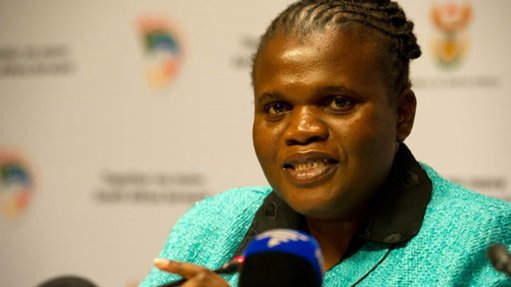
Faith Muthambi
We refer to the article entitled “Threat of close control over TV content” on page 11 of the Business Day dated 18 March 2015.
The statement that I have been “stalling cabinet’s approval of the digital migration policy for a year” is laughable. The President only announced my appointment on the 25th May 2014.
The broadcast digital migration policy is a decision of cabinet and of the ANC government. Our agenda is clear - we want to successfully complete the migration from analogue to digital and do so in the interest of all South Africans not just the narrow commercial interests of individual broadcasters or manufacturers whose decisions are made in their own personal interest and for profit. It is this ANC led government who increased tariffs on imported set top boxes and stipulated a local content quota for the subsidized set top boxes to support local manufacture. It is this ANC led government who will ensure that public broadcasting in this country will be universally available to all South Africans.
Government has consulted all interested parties on the digital migration policy. One of my predecessors was even taken to court by eTV. The decision of that court has been respected in the policy. Encryption is a commercial decision to be made by individual broadcasters and they remain free to make this decision and manage it at their own cost.
Let us now turn to the factual inaccuracies in the article.
Firstly, the STBs will have a secure bootloader so it is factually incorrect to say that any malicious software can be downloaded. Can we please invite the author to study SANS 862, the standard for free to air STBS which stipulates the requirement for a secure bootloader. Particular attention should be paid to paragraph 6.3.2.1 which deals with the secure download function.
Secondly, encryption is required to switch off the services of a subscriber. It is not necessary to protect content. If this was the case why have other public broadcasters across the world not encrypted their digital terrestrial broadcasting signal? In fact public broadcasters like the BBC specifically rejected encryption because they feared it could undermine universal access. Encryption does not prevent content from being pirated. Pay TV broadcasters spend a fortune fighting piracy - we know this because they continue to lobby for stronger measures to combat piracy. Again can we request that the author study the SANS 862 specification? May we specifically refer her to paragraph 4.1 where Table 1 indicates the major hardware and firmware requirements for the decoder which makes High-bandwidth Digital Copy Protection (HDCP) mandatory.
Thirdly, the existing policy allows for mass messaging. Paragraph 5.1.2.1 in the policy, (a paragraph which we have not amended) requires MHEG 5. MHEG 5 is a royalty free system and is included in the SANS 862 standard. It has the technical capacity to offer application services which will allow government information to be carried on a one to many basis without the need for STB control. Government, in addition has better and more sophisticated ways of reaching its citizens on an individual basis, through devices like mobile phones.
We made clear that government will require a security feature to protect its investment in the subsidized STB’s. It will prevent subsidized STBs from functioning across the borders of the republic. May we kindly request that before honorable Shinn puts pen to paper and misleads the public she first appraises herself of the facts and may we hasten to add that she takes the time to read the relevant documents.
Issued by Department of Communications